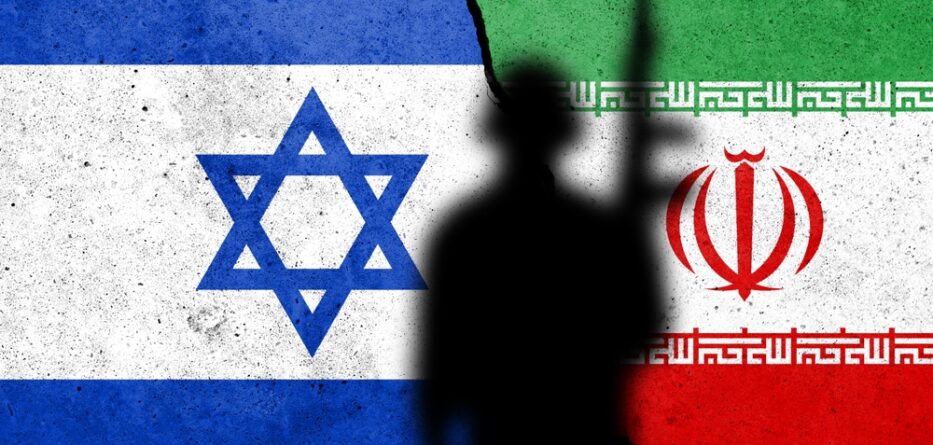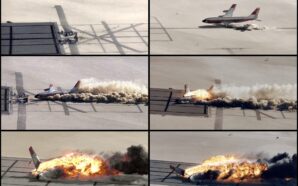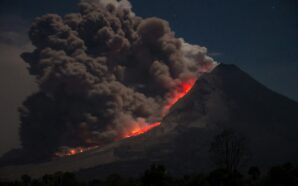
Tensions Soar as Iran Launches 100 Drones at Israel
Tensions in the Middle East reached a boiling point early Friday as Iran launched over 100 drones toward Israel in a direct and swift retaliation for a massive Israeli airstrike targeting Iran’s nuclear and military infrastructure.
The aerial assault comes just hours after Israel, in a high-risk operation named “Strength of a Lion,” deployed over 200 fighter jets in what Prime Minister Benjamin Netanyahu described as a “necessary act of self-defense” to neutralize what he called an “imminent threat of nuclear holocaust.”
“The Jewish state refuses to be a victim of a nuclear holocaust,” Netanyahu declared in a nationally televised address. “We will never allow those who seek our annihilation to obtain the means to achieve it.”
Israel’s Bold Strike: Aimed at the Heart of Iran’s Nuclear Program
The Israeli military campaign, launched under the cover of darkness, struck deep into Iran’s heartland — including the Natanz uranium enrichment facility, missile storage sites, and command centers believed to be directing Iran’s nuclear ambitions. Israeli officials say the strikes were precise and strategically aimed at dismantling Iran’s ability to produce nuclear weapons.
According to the International Atomic Energy Agency (IAEA), the Natanz facility was indeed hit, confirming Israel’s direct attack on Iran’s core enrichment capability.
Iran’s Response: Drone Swarm and Vow of “Severe Punishment”
Within hours, Iran’s Supreme Leader Ayatollah Ali Khamenei condemned the airstrikes, calling them a “crime against our beloved country.” In response, the Islamic Republic launched a wave of more than 100 explosive drones toward Israel.
“All of Israel’s defense systems are activated and operating to intercept the incoming threats,” said IDF spokesperson Brig. Gen. Effie Deffrin. “The drones are expected to reach Israeli airspace within hours, and we are fully prepared.”
Iranian state media described the drone campaign as the beginning of a “decisive response,” warning of additional retaliatory measures if further strikes occur.
Top Iranian Officials Killed in Israeli Operation
Iranian media has confirmed that several high-ranking officials and nuclear scientists were killed in the Israeli strikes, including:
- Gen. Mohammad Bagheri, Chief of Staff of Iran’s Armed Forces
- Gen. Hossein Salami, Commander of the Revolutionary Guard
- Fereydoun Abbasi, Former Head of Iran’s Atomic Energy Organization
- Mohammad Mehdi Tehranchi, Nuclear Physicist and University President
Additionally, the Revolutionary Guard’s headquarters in Tehran was reportedly engulfed in flames, with multiple explosions heard throughout the capital.
U.S. Stance: “We’re Not Involved—But Iran Must Not Target Us”
The United States quickly distanced itself from the Israeli operation. In a press briefing, Secretary of State Marco Rubio stated:
“The U.S. had no role in Israel’s actions. However, we warn Iran not to target U.S. personnel or facilities in the region.”
Former President Donald Trump, speaking live on Fox News, emphasized diplomacy and urged Iran to return to nuclear negotiations scheduled for this Sunday in Oman.
“They could be a great country,” Trump said. “But they must completely give up hopes of obtaining a nuclear weapon.”
Israel on High Alert, Public Life Disrupted
Following the strike and in anticipation of Iranian retaliation, Israel has:
- Closed its national airspace
- Cancelled all commercial flights
- Ordered bomb shelter readiness across major cities
- Cancelled public events, including the Tel Aviv Pride Parade
Defense Minister Yoav Gallant and military chief Lt. Gen. Eyal Zamir have warned that Israel is prepared for a prolonged conflict if necessary.
“Anyone who dares challenge Israel will pay a heavy price,” said Zamir.
Looking Ahead: Diplomacy or Further Escalation?
With global powers urging restraint, the question remains whether this dramatic exchange marks the start of a broader war—or a turning point toward renewed negotiations. The IAEA’s latest report indicates Iran has stockpiled enough enriched uranium for multiple bombs, while 19 nations on its board recently condemned Tehran for violating nuclear agreements.
“This is not the end,” Netanyahu cautioned. “We will take whatever action is necessary to protect our people.”
As the world watches this rapidly evolving crisis, both diplomacy and devastation remain on the table.
Should the Pentagon Really Be Using Microsoft’s AI?
-
What Caused the Plane Crash? The tragic crash of Azerbaijan Airlines Flight 190 in western Kazakhstan has left 38...
-
In a whirlwind 24 hours that rocked South Korea, President Yoon Suk Yeol’s surprise martial law declaration and its...
-
Goodbye to Bob Bryar, A Key Figure in My Chemical Romance’s Journey In a heartfelt announcement, My Chemical Romance...
-
Joe Biden’s Sudden Pardon for Hunter Raises Eyebrows and Divides Opinion on Justice System Integrity In a surprising and...
-
Royal fans are buzzing over a hidden detail in Queen Mary of Denmark’s latest portrait, which seems to speak...
-
Once again, Iceland’s fiery landscape captures global attention as the Reykjanes Peninsula experiences its tenth volcanic eruption in just...
-
Credit: Unsplash Let’s face it, some of the best food in the world isn’t found in fancy restaurants. Nope,...
-
Credit: Envato Elements Let’s be honest—traveling around Europe is a dream we all share, but there’s a not-so-fun side...
-
Canada’s Labor Minister, Steven MacKinnon, has taken decisive action to end the recent labor disruptions affecting key ports in...
-
In a significant development, over 30,000 Boeing workers have rejected a new offer from the company, which included a...
-
Chinese President Xi Jinping delivered a strong message of resilience and determination during a speech commemorating the 75th anniversary...
-
In a historic move, Volkswagen AG, one of the leading global automakers, announced it is considering the closure of...




















